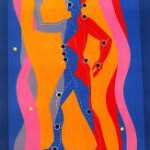 Researchers at the Korea Institute of Oriental Medicine, Daejeon, South Korea, reviewed the evidence for treatment.
Researchers at the Korea Institute of Oriental Medicine, Daejeon, South Korea, reviewed the evidence for treatment.
And, researchers from the University of Manchester, in the UK reviewed the response to self-needling maintenance treatments.
First, the details from the Korea Institute of Oriental Medicine.
- 7 clinical studies met the eligibility criteria.
- Most were small pilot studies with serious methodological flaws.
And, the results.
- Acupuncture or acupuncture in addition to usual care
- 4 studies showed effectiveness of over sham acupuncture, usual care alone, enhanced usual care, or no treatment to alleviate cancer-related fatigue.
- Acupuncture/electroacupuncture
- 3 studies showed no effect of over sham treatment.
The bottom line?
The authors concluded, “Overall, the quantity and quality of randomized clinical trials included in the analysis were too low to draw meaningful conclusions. Even in the positive trials, it remained unclear whether the observed outcome was due to specific effects of acupuncture/electroacupuncture or nonspecific effects of care.”
Acupuncturists have written to complain that these acupuncture studies and reviews fail to reflect actual results seen in their practice. This might be true, but I can only report what the medical literature reports.
Earlier this year researchers at the University of Manchester, in the UK reported that following initial therapist-delivered treatment that was considered effective, “maintenance acupuncture [self-needling] did not yield important improvements beyond those observed [with therapist-delivered acupuncture] after an initial clinic-based course of acupuncture.”
Of course, maintaining improvement with self-acupuncture vs therapist treatment is a positive outcome for a maintenance study.
6/3/13 9:01 JR